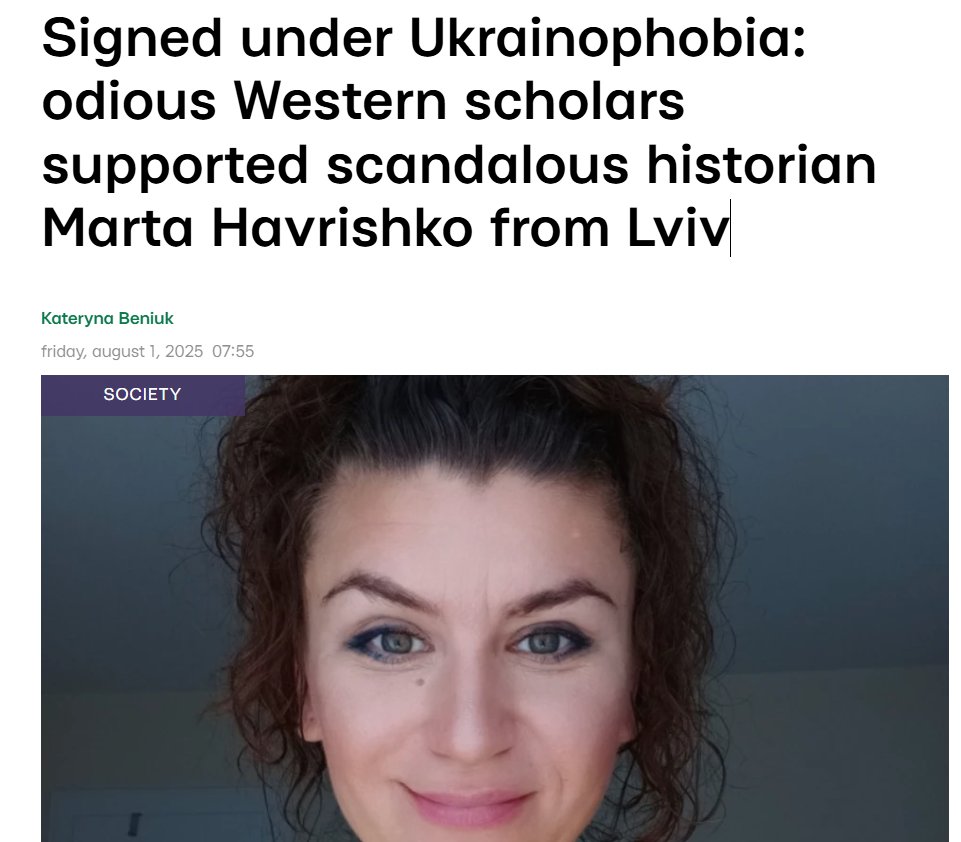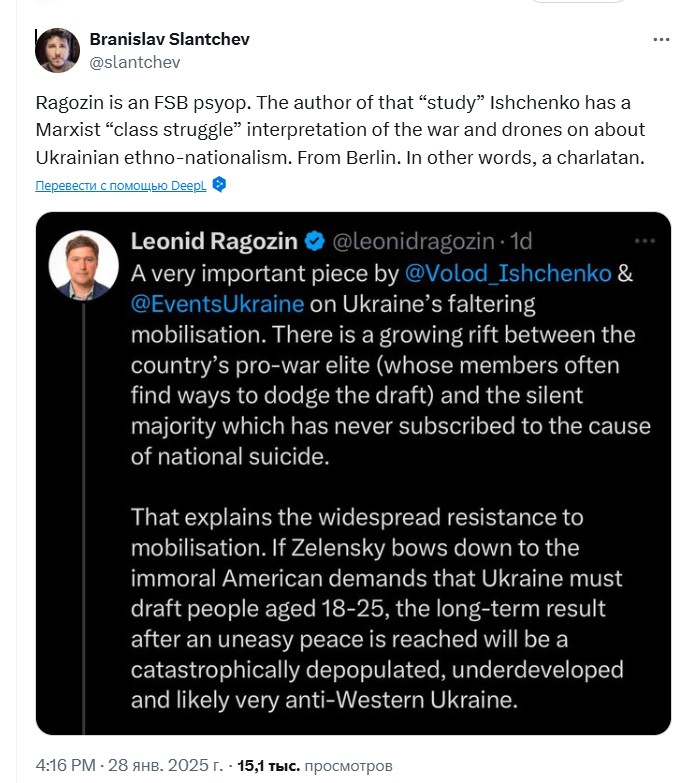
Research affiliate at Osteuropa-Institut, Freie Universität Berlin. Revolutions, left&right, violence, civil society, nationalism, class in Ukraine and beyond.
4 subscribers
How to get URL link on X (Twitter) App


 This article labels @HimkaJohn one of the most prominent Ukrainian-Canadian historians, a "Ukrainophobe" and slanders Grzegorz Rossolinski-Liebe, the author of the best and only biography of Stepan Bandera, as a "supporter of radical right-wing views." /2
This article labels @HimkaJohn one of the most prominent Ukrainian-Canadian historians, a "Ukrainophobe" and slanders Grzegorz Rossolinski-Liebe, the author of the best and only biography of Stepan Bandera, as a "supporter of radical right-wing views." /2https://x.com/rochowanski/status/1949902327814463734I first encountered this argument from Alexander Bikbov, a Russian critical sociologist, in the context of his analysis of changes to Russian higher education. /2



 Also, his party in the parliament was rated most positively among others. 35% said that it benefits Ukraine, only 19% were positive about Zelenskyi's party work. /2
Also, his party in the parliament was rated most positively among others. 35% said that it benefits Ukraine, only 19% were positive about Zelenskyi's party work. /2
https://twitter.com/HavryshkoMarta/status/1885835769614602411Now they are focusing on resistance to conscription and appealing to draft dodgers and deserters - the issue that has strong support among Ukrainians against the backdrop of growing distrust of the state. /2

 I lived, taught, and conducted research almost all my life in Ukraine until just about 5 years ago. I have published a lot, in particular, on ethnonationalism and on post-Soviet hegemony crisis. /2
I lived, taught, and conducted research almost all my life in Ukraine until just about 5 years ago. I have published a lot, in particular, on ethnonationalism and on post-Soviet hegemony crisis. /2https://x.com/Volod_Ishchenko/status/1778643536579031397
https://x.com/HavryshkoMarta/status/18412126768922135851. Sheer denial



 And then there is a list of many social inequality and corruption issues that have been unresolved so far.
And then there is a list of many social inequality and corruption issues that have been unresolved so far.


 The first article touches on the key questions behind Putin's decision to launch the full-scale invasion:
The first article touches on the key questions behind Putin's decision to launch the full-scale invasion:
https://twitter.com/DavidKlion/status/1592914478165020674A classic rebuttal is, of course, Rogers Brubaker's “The Manichean Myth: Rethinking the Distinction Between ‘Civic’ and ‘Ethnic’ Nationalism" sscnet.ucla.edu/soc/faculty/br….”
https://twitter.com/samagreene/status/1552818628625588226